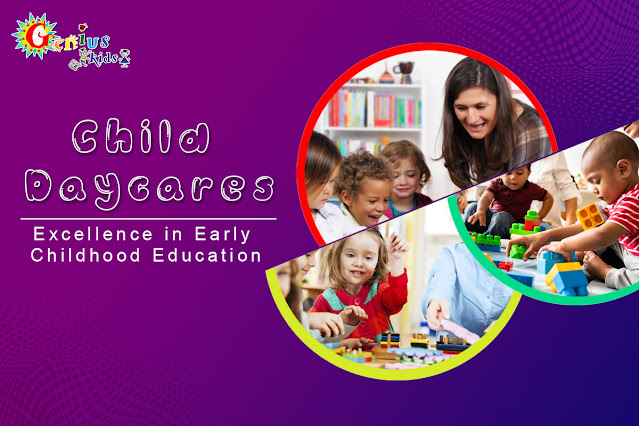High-quality early childhood education programs in daycares provide critical learning experiences during the first five years of a child's cognitive development. Activities that stimulate the young mind - including interactive reading, puzzles, exploration, and play - help build math, language, critical thinking, and memory skills. Studies show that children who attend preschool programs are better prepared for formal schooling and have higher IQs and improved ability to focus. Early cognitive stimulation sets the foundation for lifelong learning and academic success.
Social-emotional growth
through play -
Play-based learning in
daycares encourages children to share, cooperate, express empathy, and regulate
their emotions. Teachers model positive behaviors and guide children through
conflict resolution. Peer interactions in a structured environment teach
essential social skills. Dramatic play also builds self-confidence and promotes
public speaking and leadership qualities. The social-emotional competencies
gained in child daycares near Matawan help children transition smoothly
into kindergarten.
Exposure to diversity and
inclusion
Quality child daycares
near Marlboro intentionally create an inclusive environment where children
of different backgrounds play and learn together. This teaches young kids to
appreciate diversity and prevents bias formation. In mixed age groups, older
kids also learn patience and gentleness while younger ones pick up new skills
by imitating older peers. The inclusive atmosphere promotes sensitivity,
respect, and belonging. Children who collaborate across differences from a
young age tend to be more adaptable and confident.
Health and nutrition best
practices
Child daycares near Old Bridge allow
for early adoption of healthy routines like nutritious meals, regular hand
washing, and exercise through both structured activities and free play.
Providers follow safety standards and hygiene norms to reinforce habits that
prevent disease transmission. For working parents, daycares provide reliable
supervision that maintains consistency in nap times, a balanced diet, and early
intervention if developmental issues arise. The nutrition, safety, hygiene, and
health practices learned in daycare centers form lifelong positive habits.
In summary, quality early
child education lays the foundation for academic achievement, emotional
intelligence, social adaptability, and healthy lifestyles. The cognitive and social
benefits derived from stimulating, play-based preschool programs in nurturing
daycare settings give young children an advantage as they embark on their
educational journeys.

Comments
Post a Comment